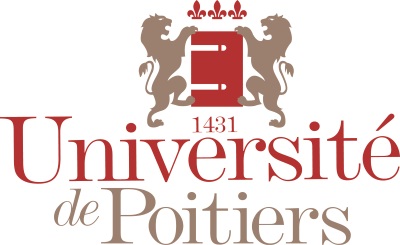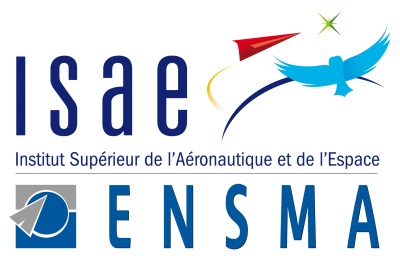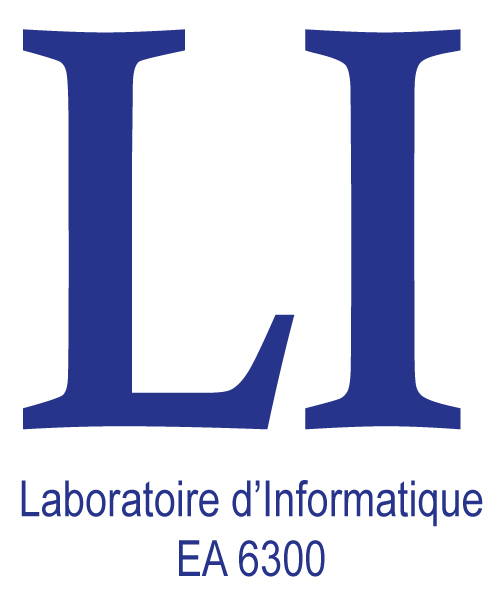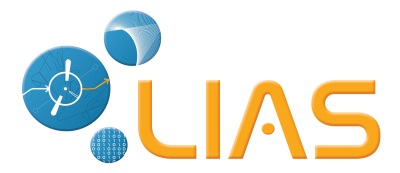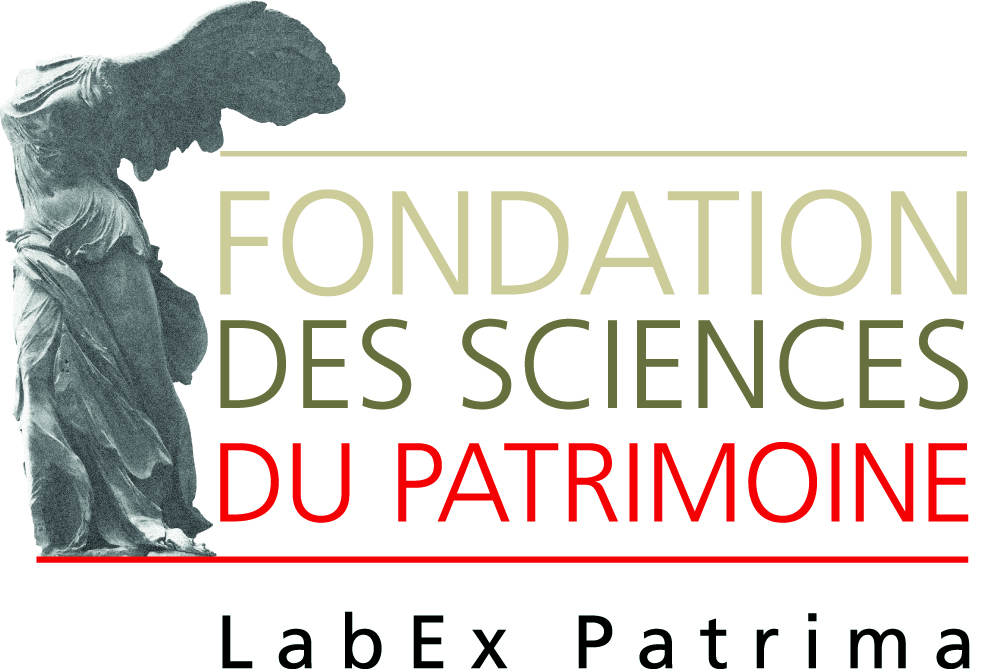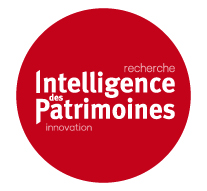SW4CH 2015
First International Workshop on Semantic Web for Cultural Heritage
In Conjunction with 19th East-European Conference on Advances in Databases and Information Systems (ADBIS 2015)
Futuroscope, France, September 8-11, 2015
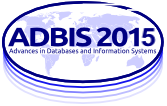
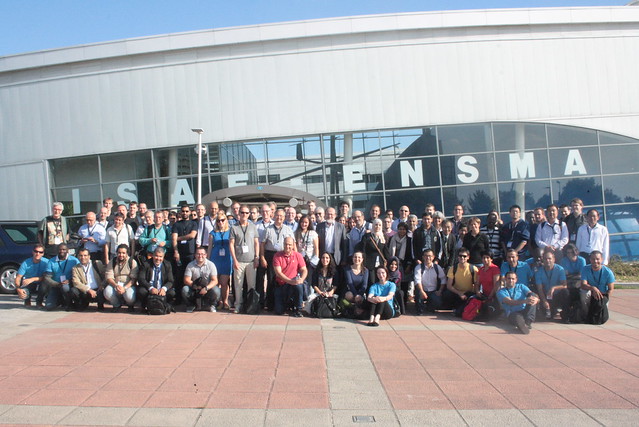
Program
Invited talk
Integrating cultural data using an ontology-based framework by Martin Rezk
Abstract. In this talk we will introduce an ontology-based data access framework that allows to virtually integrate different databases by means of a conceptual layer (an ontology). The ontology provides a convenient query vocabulary to the user, and a unified view of the underlying data. The ontology is connected to the data sources through a declarative specification given in terms of mappings. I will illustrate how to integrate cultural data by relying on a OBDA framework. In particular, I will concentrate on the following crucial questions:
- How this paradigm can contribute to ease the access of scholars to cultural heritage data: integrating temporal and spatial data, cross-linking datasets.
- What is the theory behind it.
- How to map available data sources to an ontology.
- How to query the underlying data sources using the terms in the ontology.
- How to check consistency of the data sources w.r.t. the ontology.
CV. Martin Rezk received his PhD in Computer Science from the Free University of Bozen-Bolzano, Italy, in 2012. Currently he is a postdoc in the Faculty of Computer Science, Free University of Bozen-Bolzano, working in KRDB Research Centre for Knowledge and Data. He leads the development of the OBDA framework Ontop. His research interests include data integration, ontology-based data access, query optimisation, and knowledge representation and reasoning. His articles are published in respected journals and conferences, such as ISWC, Journal of Web Semantics, EDBT, etc. He has been involved in interdisciplinary research for some time now, exploring the practical applications of OBDA
Session 1: CIDOC CRM real-life use
- Knowledge representation in EPNet. Alessandro Mosca, José Remesal, Martin Rezk and Guillem Rull
- A Pattern-based Framework for Best Practice Implementation of CRM/FRBRoo. Trond Aalberg, Audun Vennesland and Maliheh Farrokhnia
- Application of CIDOC-CRM for the Russian Heritage Cloud platform. Dmitry Mouromtsev, Dmitry Pavlov, Peter Haase, Alexey Andreev and Eugene Cherny
Session 2: Cultural Heritage Preservation and Enhancement
- Designing for Inconsistency – The Dependency-based PERICLES Approach. Jean-Yves Vion-Dury, Nikolaos Lagos, Efstratios Kontopoulos, Marina Riga, Panagiotis Mitzias, Georgios Meditskos, Simon Waddington, Pip Laurenson and Yiannis Kompatsiaris
- A Semantic exploration method based on an ontology of 17th century texts on theatre: la Haine du théâtre. Chiara Mainardi, Zied Sellami and Vincent Jolivet
- Combining semantic and collaborative recommendations to generate personalized museum tours. Idir Benouaret and Dominique Lenne
Session 3: Entity linking for Cultural Heritage
- Improving Retrieval of Historical Content with Entity Linking. Max De Wilde
- A Novel Vision for Navigation and Enrichment in Cultural Heritage Collections. Joffrey Decourselle, Audun Vennesland, Trond Aalberg, Fabien Duchateau and Nicolas Lumineau.
- Disambiguation of Named Entities in cultural heritage texts using Linked Data sets. Carmen Brando, Francesca Frontini and Jean-Gabriel Ganascia.
Call for papers
Nowadays, Cultural Heritage is gaining a lot of attention from academic and industry perspectives. Scientific researchers, organizations, associations, schools are looking for relevant technologies for accessing, integrating, sharing, annotating, visualizing, analyzing the mine of cultural collections by considering profiles and preferences of end users.
Most cultural information systems today process data based on the syntactic level without leveraging the rich semantic structures underlying the content. Moreover, they use multiple thesauri without a formal connection between them. This situation has been identified in the 90’s when the need to build a unique interface to access huge collection of data has appeared. During the last decades, Semantic Web solutions have been proposed to explicit the semantic of data sources and make their content machine understandable and interoperable. By analyzing the most important conferences and workshops related to the Semantic Web, four main categories of topics have been identified: (i) the development of Ontologies and vocabularies dedicated to the studied domain, (ii) explicitation of collection semantics, (iii) usage of Semantic Web Cultural Heritage and (iv) applications related to Cultural Heritage.
The aim of our SW4CH Workshop is to bring together Computer Scientists, and more precisely Data Scientists, involved in Semantic Web solutions for Cultural Heritage. The goal is to exchange experiences, build a state of the art of realizations and challenges and reuse and adapt solutions that have been proposed in other domains.
We seek original and high quality submissions related to one or more of the following topics:
Development of Ontologies and Vocabularies
- User Requirements life cycle for Cultural Heritage
- Vocabularies, metadata schemas, and ontologies
- Semantic Web content creation, annotation, and extraction
- Ontology creation, extraction, and evolution
- Ontology mapping, merging, and alignment
- Use and development of standards, such as SKOS, VRA, etc.
- Developments and applications of the CIDOC Conceptual Reference Model (CRM)
- Virtual Cultural Heritage collections
- Integration of virtual and physical collections
- Use of common vocabularies for Cultural Heritage
- Ontology design patterns for Cultural Heritage
Explicitation of Semantic of Cultural Heritage
- Search, query, and visualization of the Cultural Heritage on the Semantic Web
- Search of virtual and integrated Cultural Heritage collections
- Personalized access of Cultural Heritage collections
- Contex-aware information presentation
- Navigation and browsing
- Facet browsers
- Interactive user interfaces
- Social aspects in Cultural Heritage access and presentation
- Trust and provenance issues in mixed collection and mixed vocabulary applications
Usage of Semantic Web
- Creative industries
- Municipality public services
- Tourist services
- Museums
- Digital Libraries
- Integration of virtual and physical collections
- Ambient Cultural Heritage
- Mobile museum guides
- Web-based museum guides
Applications of Semantic Web technologies in Cultural Heritage
- Domain ontologies
- User and context ontologies
- Reasoning strategies (e.g. context, temporal, spatial)
- Robust and scalable knowledge management and reasoning on the Web
- Machine learning and NLP techniques
- Applications with clear lessons learned
- Semantic Web technologies for multimedia content
- Cultural Heritage services
- Semantic Web architectures for Cultural Heritage
- Peer-to-peer Cultural Heritage architectures
- Data and Information Systems Integration and Interoperability
Submission
A volume with workshop papers will be published by Springer in the Advances in Intelligent Systems and Computing series (http://www.springer.com/series/11156), for distribution among workshop participants during the workshop. Camera-ready papers are to be prepared in LaTeX (detailed instructions will be provided).
The authors of the best workshop papers will be invited to prepare extended versions of their papers after the workshop. Following an additional round of reviews, the extended papers will appear in a special issue of Information System Frontiers, Springer (Factor Impact = 0.761).
Papers will be refereed and accepted on the basis of their scientific merit and relevance to the workshop. Each paper will be reviewed by at least two Program Committee members. Duplicate submissions are not allowed, i.e. submitted papers must not overlap substantially with any other papers of the same author(s) submitted elsewhere (i.e. journal, conference, workshop etc.).
Workshop papers must not exceed 10 pages in the LNCS format and must comply with the LNCS formatting guidelines available at http://www.springer.com/series/11156 (see the link "Instructions for Authors" in the right hand side).
Papers must be submitted electronically in PDF, using this link: http://www.easychair.org/conferences/?conf=sw4ch2015


Important Dates
April 24, 2015May 1, 2015 - Paper submissionJune 1, 2015June 2, 2015 - Paper notificationJune 13, 2015June 22, 2015 - Camera-ready papers- September 8, 2015 - SW4CH 2015 Workshop
Committes
Workshop Co-Chairs
- Béatrice Bouchou Markhoff (beatrice.bouchou@univ-tours.fr), LI, University François Rabelais de Tours, France
- Stéphane Jean (jean@ensma.fr), LIAS/ENSMA and University of Poitiers, France
Workshop Organizing Commitee
- Adel Ghamnia (adel.ghamnia@univ-tours.f), LI, University François Rabelais de Tours, France
- Nizar Messai (nizar.messai@univ-tours.fr), LI, University François Rabelais de Tours, France
- Veronika Peralta (veronika.peralta@univ-tours.fr), LI, University François Rabelais de Tours, France
Program Committee
- Mirian Halfeld Ferrari Alves, LIFO, University of Orléans, France
- Katja Hose, Aalborg University, Denmark
- Cvetana Krstev, Library and Information Science Department, University of Belgrade, Serbia
- Patrick Le Boeuf, Bibliothèque nationale de France
- Denis Maurel, LI, University François Rabelais Tours, France
- Nizar Messai, LI, University François Rabelais Tours, France
- Isabelle Mirbel, WIMMMICS, University Nice Sophia Antipolis, France
- Alessandro Mosca, SIRIS Academic, S.L., Barcelona, Spain
- Cheikh Niang, Laboratoire de Recherche des Monuments Historiques, France
- Martin Rezk, Free University of Bozen-Bolzano, Italy
- Xavier Rodier, Laboratoire Archéologie et Territoires, University François Rabelais Tours, France
- Simon Scerri, Fraunhofer Institute for Intelligent Analysis and Information Systems, Germany
- Dusko Vitas, Computer Science Department, University of Belgrade, Serbia

